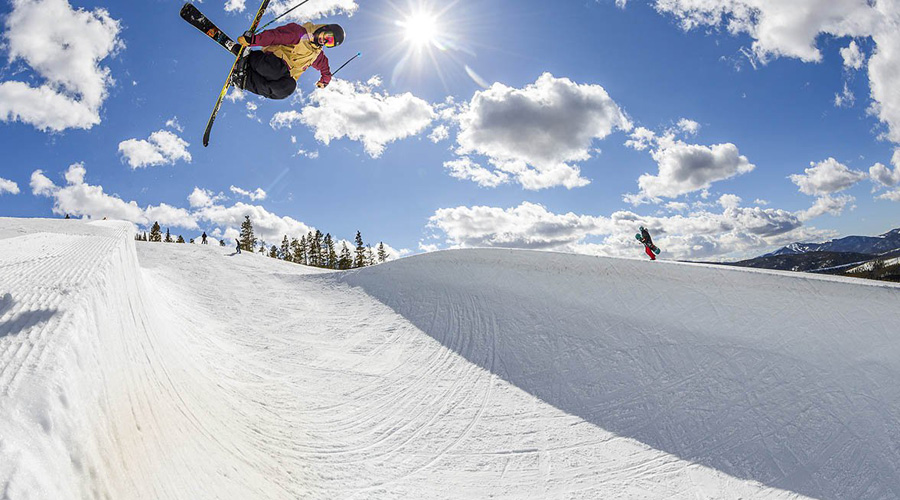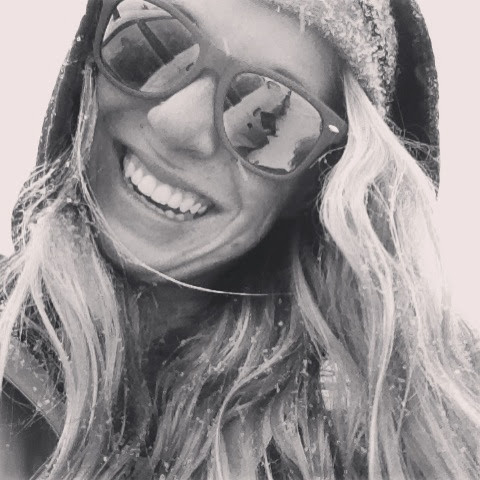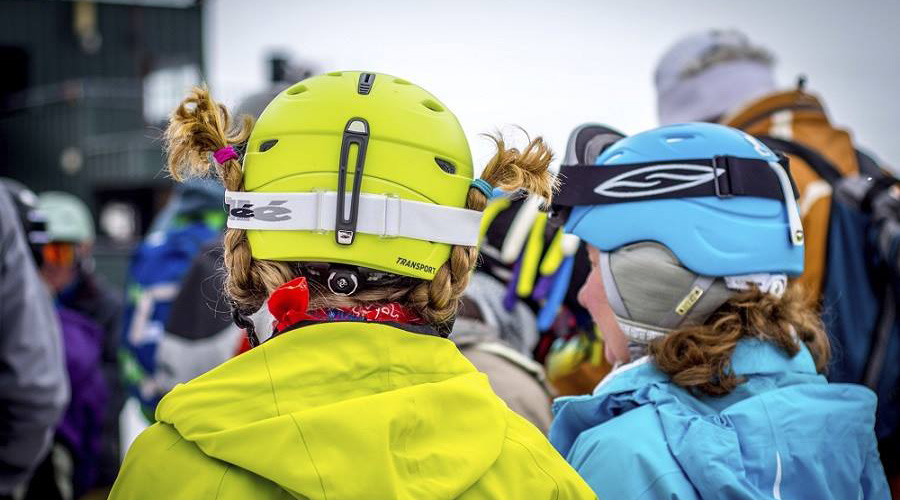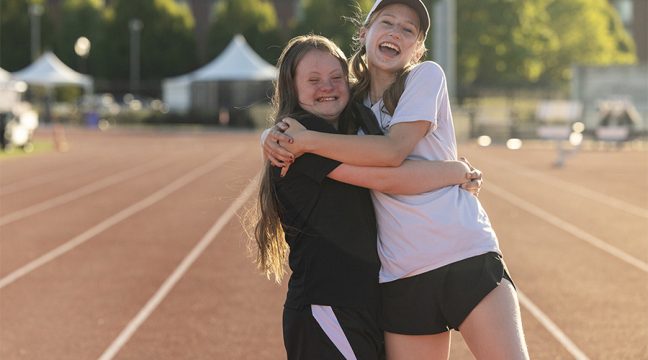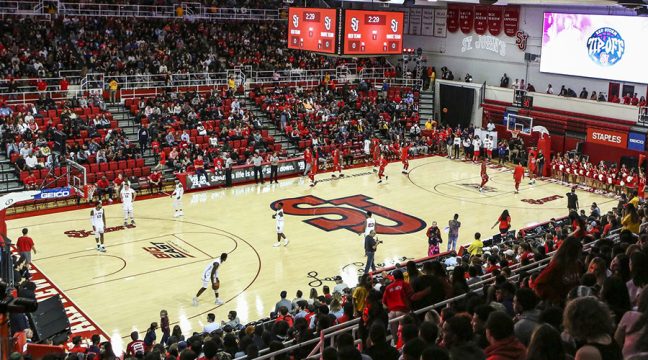Winter Park’s mental skills coach, Stephanie Zavilla, explains how to banish psychological demons and recover with confidence this ski season.
By Carly Terwilliger
There’s a certain inevitability to ski injuries. Unless you learned as a kid, you probably spent your first couple outings in pain and discomfort. And even after years of hitting the slopes, there’s still the possibility of serious injury.
So what keeps skiers willing to come back after taking a bad spill? And how do they overcome the frustrations of recovery and the fear of re-injury? Mental Skills Coach Stephanie Zavilla of the Winter Park Resort Competition Center sat down with SGB to talk about the mental battle of recovery.
Zavilla, who holds a Master’s degree in Sport and Performance Psychology from the University of Denver’s Graduate School of Professional Psychology, has been with Winter Park’s team of about 1,000 athletes for four years. The biggest practice she preaches is that recovery really begins by differentiating physical and mental restoration. For instance, Zavilla spotlights ACL injuries as one of the most common, with a daunting physical recovery time of eight months.
“Yes, eight months is a long time, but in the beginning most athletes are pretty motivated because they get moving right away,” Zavilla said. “They think, ‘Yay, I’m doing something!’”
But it doesn’t take long for frustration and disappointment to set in. There’s often an attitudinal disconnect between the trainer and the person who’s actually going through the recovery. As Zavilla explained the process, “The trainer is going, ‘All right! You moved it a tiny bit more than last week!’ Meanwhile, the athlete is getting discouraged because you start to get bummed out by such incremental improvements.”
The Social Network
Most skiers are eager to get back to the sport as soon as possible, and not just for personal enjoyment or the thrill of competition. The inherent social aspect enjoyed on the lift or at the terrain park, which under normal circumstances can act as a stress release, is frequently overlooked when considering a recovery plan. When a skier is injured, positive feelings associated with physical challenges, being outdoors and spending time with friends are displaced. That void leads to isolation, one of the most serious mental side effects of injury, according to Zavilla.
To fight the isolation experienced by athletes rehabbing off-site, she provides support through the team’s Return to Sport Program, setting realistic weekly goals while ensuring recovery progress is registering on a psychological level as well. She uses questions like, “What is your pain right now?” and asks athletes to rate the degree to which they think their injury is rehabilitated. The latter is important in the case of overzealous athletes who insist, “Hey, I’m at 90 percent, almost time to get back out there.” That’s when Zavilla has to say, “No, dude, you have four months left,” and gets to work adjusting goals and timelines.
“Physical recovery is important, but equally important is coherence and stability. If you don’t feel broken, you don’t hold back on your turns and you start to feel like yourself again.” –Stephanie Zavilla, Mental Skills Coach, Winter Park Resort Competition Center
In resisting the pit of negative feelings associated with injury, it also helps not to compare yourself with healthy friends or teammates, Zavilla explained. The U.S. Ski Team, for example, has return-to-snow camps that ease groups of injured athletes back onto the slopes together. “You’re all in the same boat, so there’s not that temptation to compete with other teammates,” Zavilla added. “Instead, you’re more likely to just be grateful to be back on your skis.”
While it’s unrealistic to plan your injury to coincide with one incurred by a sympathetic friend, the basic premise makes sense: you can either be happy and grateful to be out doing something you love, or you can be bitter and frustrated that you’re not doing it as well as the other guys. Only one is productive for overall recovery.
Positive Feedback
For the past year, Zavilla has upped the tech ante at Winter Park’s training center by using biofeedback to monitor rehabilitation. For example, one of her athletes suffered a tibial plateau fracture that required a dozen screws to repair. To go along with that horrifying image, the skier also experienced a “fear of returning to snow,” which Zavilla said showed up as an increased heart rate on the biofeedback.
“Physically, she was close to complete recovery, but even imagining the act of skiing made her anxious,” remembered Zavilla. “She would also favor her good leg during visualization, out of fear that the injured leg wasn’t strong enough.” Biofeedback information was instrumental in helping Zavilla guide the skier back to strength and confidence. “Physical recovery is important, but equally important is coherence and stability,” she said. “If you don’t feel broken, you don’t hold back on your turns and you start to feel like yourself again.”
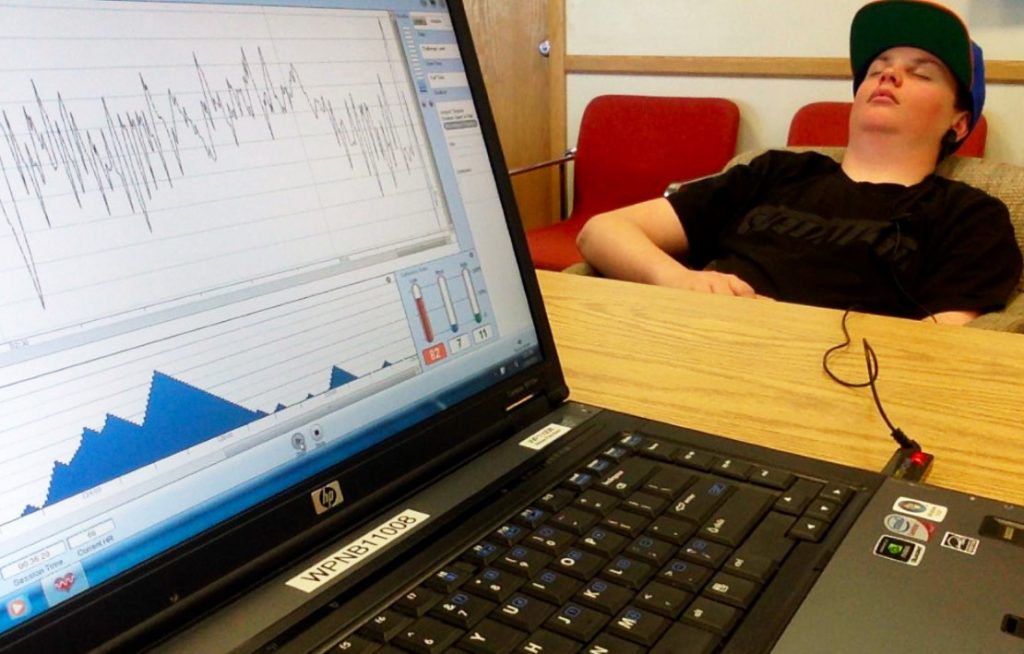 Getting Back To Normal
Getting Back To Normal
For those that can’t make it to the biofeedback lab or hire a mental skills coach, don’t worry; Zavilla has some general tips for recovering from ski injuries this season:
- When you’re doing your first runs after a mishap, remember, “Relax! Chill out, take a deep breath.”
- “Remember, this is something you enjoy doing. It’s normal, it’s good.”
- Eliminate the word “don’t” from your mental vocabulary. “Once you start thinking, ‘don’t be afraid, don’t get injured again,’ that mindset triggers the exact things you’re trying to avoid,” Zavilla warned.
Personal experience has given Zavilla helpful insight into the recovery process, having come back from a knee injury five years ago and a concussion in the past year. “It was a good learning experience for me, because I understood what my athletes go through when they’re trying to come back,” she said, adding that she came away from both incidents with a new appreciation of what she was capable of.
Speaking of things that shouldn’t be taken for granted, Zavilla strongly recommends strength and flexibility conditioning as a way to prepare for the mental side effects that come with injuries. Think of pre-season strength and flexibility workouts as an insurance policy. When you catch an edge, take a tumble and come up limping, you’ll remember that extra gym time and think, “I’m definitely strong enough to recover from this.”
To get involved in the RTS program (as an athlete or a coach), or to find out more, email Stephanie Zavilla at szavilla@winterparkresort.com.
Photos courtesy Winter Park Resort Competition Center

